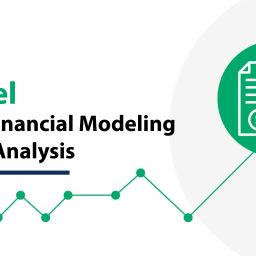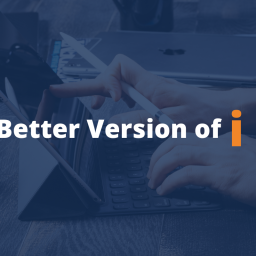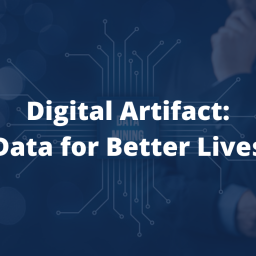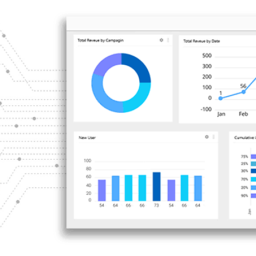
Business intelligence profoundly influences a company’s strategic, tactical, and operational decisions. It promotes fact-based decision-making, replacing assumptions and intuition with insights drawn from historical data.
Business intelligence platform tools perform data analysis, generating comprehensive reports, summaries, dashboards, maps, graphs, and charts. These tools provide users with a deep comprehension of the business’s dynamics. Explore the realm of Business Intelligence and Visualization training, and achieve business intelligence certifications to enhance your expertise.
Business Intelligence (BI) encompasses a collection of processes, systems, and technologies that transform raw data into actionable insights for profitable enterprise operations. BI solutions integrate technology and strategy to gather, analyze, and interpret data from both internal and external sources. The objective is to offer information and analytics that shed light on the historical, current, and prospective conditions of the subject in question.
BI serves as a suite of resources and services aimed at converting data into practical knowledge and information. Within the realm of business intelligence, activities like descriptive analytics, performance benchmarking, process analysis, and data mining find a home. The company’s data is structured into manageable reports, performance metrics, and trends, utilizing the capabilities of business intelligence.
The motivation behind the necessity of BI originates from the belief that equipped with enhanced information, managers can consistently make more sound decisions compared to when they lack comprehensive insights.
What is a Business Intelligence Platform/Software?
Having delved into the concept of business intelligence, let’s now explore the intricacies of a business intelligence platform. Business intelligence platform (BI) software assists organizations in collecting, comprehending, and presenting data. This foundation underpins a company’s business intelligence strategy, outlining how data will be leveraged to elevate decision-making.
The Power BI platform comprises an amalgamation of software services, applications, and connections that collaborate to seamlessly convert diverse data sources into coherent, captivating visuals, and interactive insights.
Mildly put, suggesting the existence of superior alternatives would be an understatement. Thanks to this business intelligence software, enterprises can effectively vie in today’s data-abundant environment, capitalizing on their data as a competitive edge. Among the examples of BI platforms are Microsoft Power BI, SAP Business Projects, Looker, Tableau, and Qlik Sense.
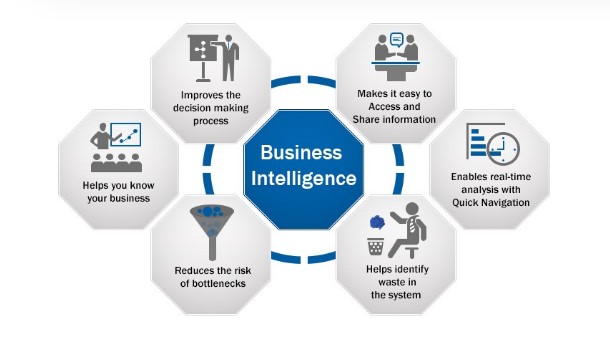
Top 10 Recommended BI Platforms with Features
We will explore the top BI platforms in the following paragraphs. While Google certainly deserves a place on our list, our focus is on compiling the best business intelligence platforms specifically tailored for enterprises.
- Tableau: Tableau offers dynamic data visualization and interactive dashboards, allowing users to create compelling reports and perform comprehensive data analysis.
- Microsoft Power BI: Microsoft Power BI seamlessly integrates with various tools, providing real-time data connectivity, AI-driven insights, and visually engaging visualizations.
- Qlik Sense: Qlik Sense empowers users with intuitive data exploration through associative analytics, enabling the discovery of data relationships.
- Looker: Looker emphasizes data modeling and exploration, offering a unified platform for data analytics and informed decision-making.
- Sisense: With a high-performance analytics engine, Sisense delivers end-to-end BI solutions, including data integration and advanced analytics.
- Domo: Domo enables real-time data consolidation, personalized dashboards, and alerts, facilitating agile decision-making.
- MicroStrategy: MicroStrategy provides comprehensive BI capabilities, encompassing advanced analytics, mobile features, and seamless embedded BI integration.
- TIBCO Spotfire: TIBCO Spotfire empowers users with data discovery, predictive analytics, and AI-generated insights for actionable intelligence.
- Dundas BI: Known for its customizable, interactive dashboards and advanced visualizations, Dundas BI is ideal for tailored analytics solutions.
- Yellowfin BI: Yellowfin BI focuses on collaborative data storytelling, enabling users to create and share compelling data narratives.
Why Do Organizations Need BI Platforms?
- Informed Decision-Making: BI platforms empower organizations to base their decisions on factual insights rather than assumptions. They aggregate, analyze, and visualize data from various sources, allowing businesses to make well-informed choices aligned with their goals and strategies.
- Strategic Planning: BI platforms offer a comprehensive overview of an organization’s performance, market trends, and customer behavior. This data-driven perspective aids in developing and adjusting long-term strategies, ensuring alignment with evolving market dynamics.
- Performance Monitoring: BI platforms provide real-time dashboards and reports for tracking Key Performance Indicators (KPIs) and metrics. Businesses can monitor progress and make timely adjustments to optimize outcomes.
- Identifying Opportunities: BI platforms uncover hidden opportunities within the data, such as emerging market trends, customer preferences, or process inefficiencies. This allows organizations to capitalize on new prospects and stay ahead of the competition.
- Risk Management: BI platforms help organizations identify potential risks and vulnerabilities by analyzing historical data and current trends. This proactive approach allows businesses to implement risk mitigation strategies and enhance overall resilience.
- Customer Insights: BI platforms analyze customer data to understand behavior and preferences, crucial for delivering exceptional experiences. Businesses can tailor offerings and marketing strategies to effectively meet customer demands.
- Operational Efficiency: BI platforms identify bottlenecks, inefficiencies, and areas for improvement, streamlining operations. This leads to optimized processes, reduced costs, and enhanced productivity.
- Data Centralization: BI platforms centralize data dispersed across various systems and departments, providing a single source of truth for accurate and consistent analysis.
- Forecasting and Predictive Analysis: BI platforms anticipate future trends and outcomes using historical data and predictive analytics. This foresight helps organizations make proactive decisions and prepare for potential challenges.
- Empowering Data Literacy: BI platforms promote a data-driven culture by making complex data understandable and accessible to non-technical users. This democratization of data empowers employees at all levels to contribute to decision-making.

Discover Business Intelligence with Shadowdirector
Delve deep into the realm of Business Intelligence Concepts, Tools, and Applications. Learn the art of handling extensive datasets through MicroStrategy’s Online Analytical Processing and Visualization capabilities, crafting captivating visualizations and dynamic dashboards. These newfound skills are a potent asset for steering strategic decision-making across diverse business sectors.
For those with a passion for data analytics and aspiring to thrive as a data analyst, data scientist, or data warehouse specialist, Google’s Data Analytics course beckons. Enroll now to master the art of data analysis, management, and visualization for unlocking profound business insights. Embrace this opportunity to catapult your career into the dynamic domain of business intelligence.
If you’re already proficient in data analytics, consider the advanced iteration of the Professional Certificate. Unveil new vistas of job prospects accompanied by lucrative salary packages. Your journey towards professional growth and excellence in the realm of data-driven decision-making begins here.
Read more…


